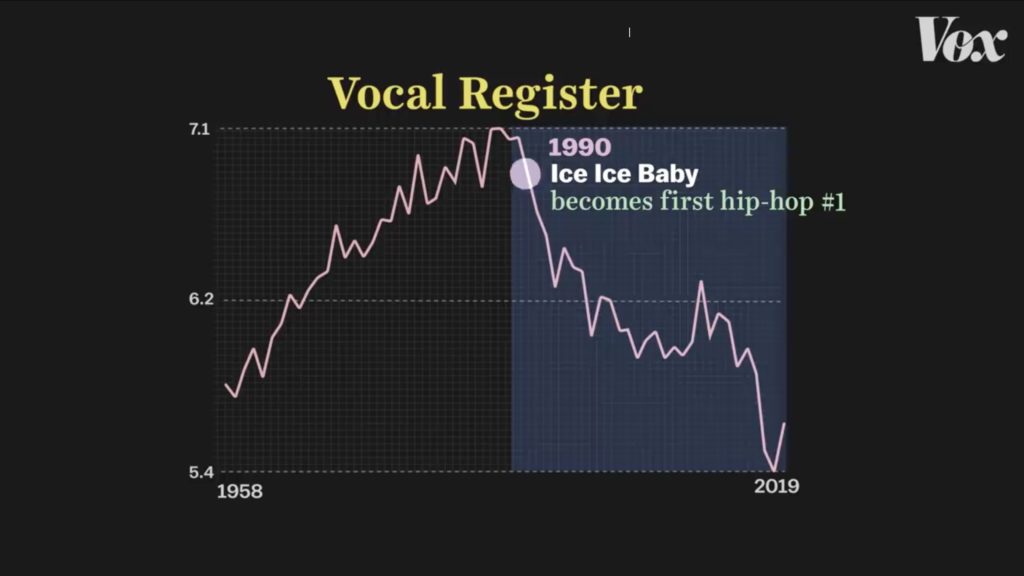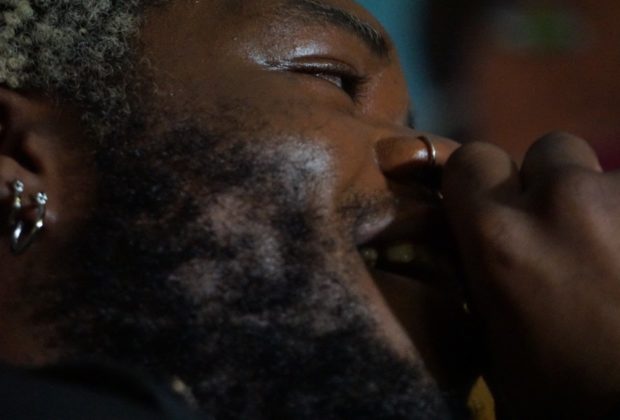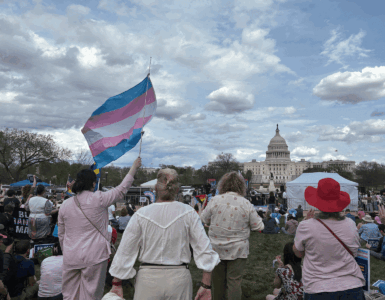If you talk to old-school music lovers today, they all have the same lament: Where’s the bass?
Gone from the charts are hot-buttered soul singer Isaac Hayes or love balladeers Barry White and Teddy Pendergrass, new jack singer Johnny Gill or even R&B crooner Jaheim Hoagland. Today it’s harder to hear that low, sexy growl or booming bass. The decade is two months away from ending and it has managed to produce only two popular male R&B singers who sing at lower registers, Ty Dolla $ign and Khalid. Unique voices are also rare these days.
How could R&B come to lack the vocal diversity that once made it great? Who stole the bass from R&B?
Rolling Stone recently claimed that R&B appreciated more fine gradations of the human voice than any other genre. Toni Braxton told the magazine that deeper voices favor ballads, which “are more midtempo” and have “long climbs, heaving climaxes and reward vocal gravitas.”
Legendary R&B baritone Jeffrey Osborne, formerly of the 1970s band LTD, says those deep voices may have disappeared because of hip-hop’s increased popularity. “Young males are more into rap than they are singing, and no one is taking time to develop styles.” Osborne said this is evident even in his annual singing competition Hand Me the Mic, which has yet to have one male contestant.
“There’s so many people that sound alike today. I have problems distinguishing them. I hear so many things that they’re doing to aid their vocals. There’s so much going on with Auto-Tune; you can’t really tell whether someone is really singing in tune or is it the aid of Auto-Tune.”
“At this point in time, I can’t even tell you how many real male vocalists I’ve heard, especially that are baritones. Everyone wants to sing up in the air and be a first tenor. It’s kind of sad, it’s kind of fading and I hate to see it.”
Some music aficionados believe that R&B soul singers are victims of changing musical styles and changing technology. For example, Rolling Stone’s Elias Leight said that R&B faded away as record companies and radio stations stampeded to more cost-effective hip-hop groups, which have more sway on younger audiences, and are less expensive to produce with the use of Auto-Tune instead of voice coaches.
Producer, DJ and former Sirius XM radio producer Kyle Murdock said, “It takes a lot less nowadays to create a hip-hop song than a rock song. If you’re really trying to do an old-school rock song with a band and recording, there’s a lot more involved than buying an app on my iPhone and making some 808s, drums and finger snaps and a little catchy melody.” He said lower cost and faster speed of production may have factored into record companies deciding to push more hip-hop or hip-hop influenced acts, which has contributed to hip-hop becoming the most popular genre in the world, with “seven of the top 10 most-consumed coming from that genre,” according to Nielsen’s 2017 U.S. Music Year End Report.
Auto-Tune and improved editing software also played a part in helping rappers with lower register singing voices sound more pleasing. And it has allowed artists with scant singing ability to be able to carry enough tune for at least a chorus.
“The approach (to today’s R&B) has shifted to processed and computerized sounds rather than an artist’s vocal chops. That doesn’t mean it has lost its soul, but it has morphed into a crossbreed of genres, one that has allowed space for artists considered “hip-hop” to indulge in their singing dreams,” singer and DJ Booth contributor Adrian Daniel said.
Overtime, hip-hop has become more melodic, but many rappers still aren’t strong singers so they can only go so far. Some singers have decided to, been influenced by other artists, or been urged to adopt this style in pursuit of more mainstream success, giving them little reason to develop their voices.
Listen to the diversity of voices of male R&B singers throughout the 20th and 21st century:
Osborne said it’s important for artists to develop their own voice, something he reminisces about doing himself. “In my era, you kind of recognized everyone as soon as they opened their mouth,” he said. “At a young age I was able to sing like Marvin Gaye; I could sing like Donny Hathaway; I was heavily influenced but I made the point to stop listening and develop my own style.” “Today it seems that everybody tries to copy the hottest thing out.”
A team at Vox conducted research about the abundant use of falsetto in pop music found that in the late ‘80s to early ‘90s lower vocal registers became more popular. They assume that this was due to hip-hop’s rise in popularity.
Vox also found that regardless of vocal register, if a song has falsetto it will chart higher. This may discourage labels to “take a risk” on lower-register singers like a Jaheim who rarely if ever try to sing in falsetto.

Similarly, an article in Vibe Magazine focused on the forgotten voices of ‘80s R&B, a more ballad-friendly decade that had more “sangers” than the heavily hip-hop influenced decade to come. New Jack Swing would play a big part in the influence of hip-hop on R&B, which lent itself to more up-tempo dance songs than ballads that allowed singers of lower registers to shine. K-Ci of Jodeci, Aaron Hall of Guy and Johnny Gill of New Edition all flourished under it. Even Michael Jackson embraced it.
Although R&B fan Dimitrius Webb says that the genre has a variety of sounds and voices, he thinks that many of the current performers aren’t great singers and wishes that there were more. Webb believes that there is still a place for deep voices.
“People love those deep voices,” he said. “To my knowledge there seems to be a lack of those voices and I’m pretty sure that they would be welcome because they’re different.”
Grammy-nominated singer Carolyn Malachi also says that there is still a place for lower register singers but they’ll have to find a way to get people to listen.
“I think there’s definitely a place. I think once you delve into the music industry and you learn like how it works, like how a person can go from just having a song in their head to finding a beat producing it and making that a viral hit. I think once you understand what the resources are behind that, then you start to understand it’s kind of about the voice, but it’s also about what it takes to take a person who is an artist and put them onto a platform that will allow them to excel and to drive the message out there.”
Webb and Osborne agree that a combination of industry and fan trends have caused the loss of those power voices.
But has the audience for that voice moved on? Osborne and Webb say that the fan base for deep voices may have adjusted to the latest trend.
“The fans are what’s pushing what’s popular and the industry is recognizing that,” Webb said, “and the industry is pushing out more of it.”
Osborne agreed. “The industry allows it to happen but it’s on the fans for accepting it. The industry is going to put it out because that’s what’s selling, so you almost can’t fault them.”
Dikembe Wilkins writes about entertainment and technology for 101Magazine.net, NewsOasis.org and HUNewsService.com.










Recent Comments